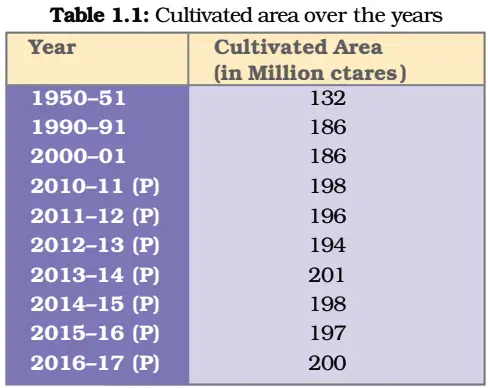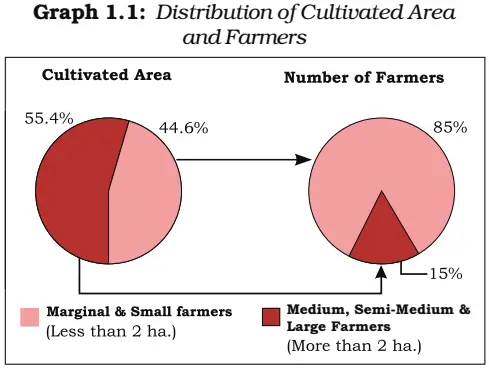Revision Notes of Economics for Class 9 Chapter 1 The Story of Village Palampur
The purpose of Revision Notes of Economics is to introduce some basic concepts relating to production, through the story of village Palampur.
Production
It is a process that is aimed to produce the goods and services that we want. There are four factors of production:
Land
Land and other natural resources such as water, forests and minerals.
Labour
The people who will do the work.
Physical capital
The variety of inputs required at every stage during production.
Human Capital
For example, Knowledge and enterprise.
Human capital, land, labour and physical capital are put together to produce an output.
Various production activities in Palampur
Farming Activities
Farming is the main production activity in rural India, but the major constraint being, that the land under cultivation is almost fixed (almost stagnant since 1960).
Different types of methods to increase yield
- Multiple cropping: Planting more than one crop on a piece of land during the year (For example, Rabi crops during winters and Kharif crops during rainy season).
- Use of modern farming methods for higher yield (measured as crop produced on a given piece of land during a single season). The Green Revolution in the late 1960s introduced high yielding varieties (HYVs) of seeds. As a result of which, the yield increased.
Problems with farming
- Loss of soil fertility due to increased use of chemical fertilisers.
- Continuous use of groundwater for tube well irrigation leading to the depletion of the water-table.
- Unequal Land distribution, as many families are landless, and most others cultivate small plots of land lesser than 2 hectares, which does not bring enough income for the family.
- Lower wages of hired labourers than the minimum wages set by the government due to intense competition for work.
- High rate of interest on loans taken by small farmers for capital needs.
Non-farming Activities
Dairy
People feed their buffalos various kinds of grass and the Jowar and Bajra that grows during the rainy season.
The milk is sold in, the nearby large villages, from where the milk is transported to far away towns and cities.
Small-scale manufacturing
Unlike in big factories, manufacturing in Palampur involves very simple production methods and are done on a small scale. They are carried out mostly at home or in the fields with the help of family labour. Rarely labourers are hired.
Retail Trade
The traders of Palampur are shopkeepers who buy various goods from wholesale markets in the cities and sell them in the village.
Transport
Various modes of transport are used to ferry people and goods in return of which they get paid, thus generating an economic activity. This sector has grown over the past few years.
Interesting Fact
Due to modern farming practices, yield of wheat went up to 3200 Kg per hectare from 1300 Kg per hectare.






